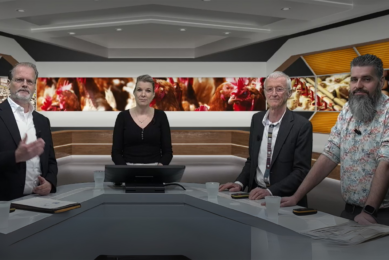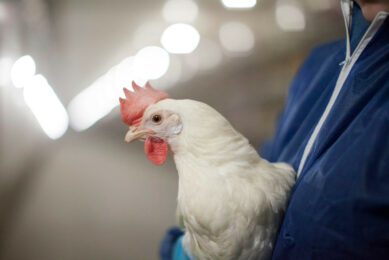Oman feed producers awaiting subsidy
Producers of animal feed, including poultry feed in Oman are eagerly waiting for a government decision on subsidy, in view of the high pricing for these products.
Dozens of animal feed producers, including major players like Oman Flour Mills, have already presented their case to the Ministry of Commerce and Industry, seeking financial assistance, similar to those available for cement and wheat flour makers.
It is said that the government is considering the proposal and will take a decision soon. “No decision has been taken so far,” said Dr Nasser Al Mauly, chief executive of A’Saffa Foods.
Local animal feed producers have recently complained that their profit margins are under severe pressure, following the rising cost of imported grains.
Making a loss
Oman Flour Mills, one of the biggest producers of animal feed in the country, recently said the government restriction in increasing feed prices has affected the feed mill’s profitability in the first quarter of this year.
“The feed mill is incurring losses and this in turn has reduced the overall profitability of the company and the group,” said Manal Mohammad Al Abdwani, chairperson of the majority-state owned Oman Flour Mills.
“Should the subsidy come into force the feed mill will become profitable. The loss on feed products and diminution in value of investments are the main reasons for lower net profit,” she added.
A similar view was expressed by Dhofar Cattle Feed. “There were no price revisions of our dairy, feed and poultry products during the year even though international commodity prices were unfavourable,” said Hamoud bin Musthail Ahmed Al Mashani, chairman of Dhofar Cattle Feed.
“The management is well aware of the impact of intense competition, in highly price sensitive local and export markets and will remain focused in its efforts to maintain the market share to achieve the sales per forecast during the remaining period of the year,”
Stringent price policy
In fact, no animal feed producer can freely increase the prices of their products. Companies have to give valid reasons to convince the government to get permission for increasing prices. This stringent measure, according to sources, is an effective tool to control inflation.
Sources said that the government will decide on the subsidy on a case-to-case basis, after taking into consideration the cost structure of each company.
This could include import cost of the grain for making animal feed. Among the GCC states, Saudi Arabia has been offering subsidies to animal feed makers in an apparent move to control inflation.











